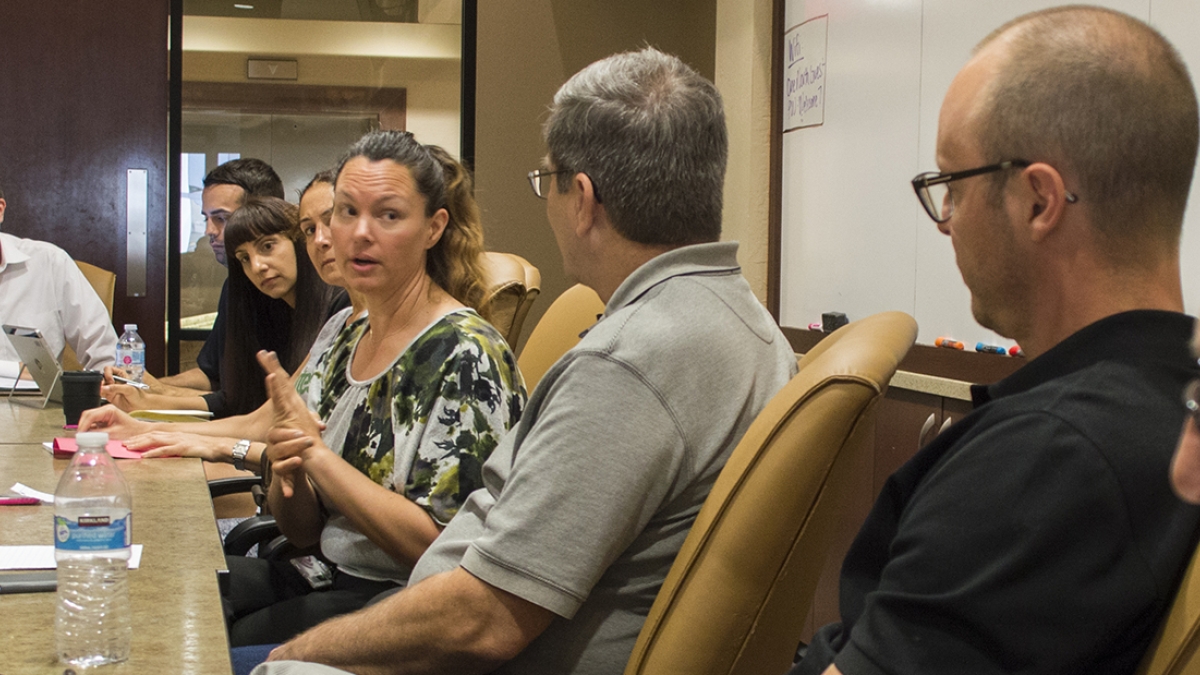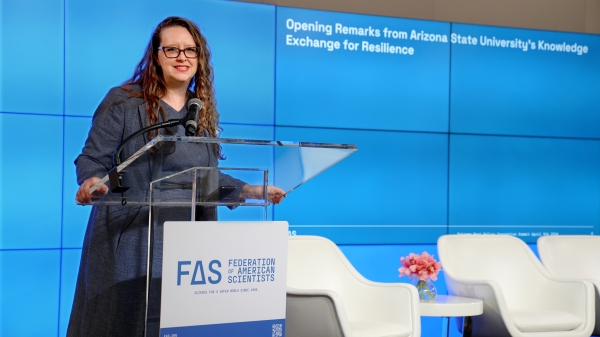ASU and Phoenix issue new call for ventures to innovate for waste prevention and diversion

The RISN Incubator, operated in partnership between ASU's Rob and Melani Walton Sustainability Solutions Service and Entrepreneurship + Innovation, works with the city of Phoenix and its public works department to drive a robust circular economy in Arizona and beyond.
Arizona State University, named the most innovative school in the nation by U.S. News and World Report for four straight years, in collaboration with the city of Phoenix — named the top performing city overall by Governing and Living Cities — are calling for innovators and entrepreneurs to participate in the RISN Incubator, a diverse solutions business development and accelerator program. The application period is open now.
The RISN Incubator is a program within the Resource Innovation and Solutions Network (RISN) and supports new-to-market ventures that focus on improvements in processing or utilization of waste as a raw material for new products or energy. Selected enterprises receive unique access to resources and support from ASU and Phoenix to develop their solutions that contribute to the regional and national development of a vibrant circular economy.
“We are excited to engage a new cohort of innovators to build upon the impact of our initial 13 companies and help drive a stronger, more resilient economy that continues to explore new ways to close loops, create jobs and drive innovation,” said Alicia Marseille, director of the RISN Incubator. “In just two cohorts, RISN Incubator ventures have generated more than $4.1 million in revenue and created 43 jobs, proving the substantial impact these companies have made in just over one year.”
The RISN Incubator provides access to technical experts — including university faculty — for their advancement, workshops and training, business plan and growth strategy development, access to materials called feedstocks from Phoenix’s waste transfer station and a process for continuous evaluation and prequalification for funding opportunities with introductions to funders.
“By cultivating public-private partnerships to turn trash into new products, the Phoenix Public Works Department continues to work to increase our waste diversion rate and create economic impact in our city,” said Ginger Spencer, Phoenix Public Works director. “As inspiring as it is to see the new businesses take hold, it is even more inspiring to work with them to help us meet our waste diversion goals for 2020 and beyond.”
Startup concepts eligible for the incubator include, but are not limited to, conversion of solid waste into new material or energy; services that divert, reuse or recycle; and software applications and design services that focus on sustainability. The priority waste feedstocks that the successful ventures will have access to include plastics, batteries, carpeting and carpet foam, broken furniture, mattresses, textiles, food waste, compost and plastic film.
Thirteen ventures have completed their mentorship period within the incubator, including the following:
- Renewlogy, developer of a proprietary chemical recycling process that allows plastic to be reversed back into its basic molecular structure, converting nonrecycled plastic waste into new valuable products such as high-value fuels. Renewlogy was a winner of the 2017 Arizona Innovation Open and the 2018 Sustainable Brands Innovation Open.
- Hathority, which specializes in software integration and application development in order to make societal impacts such as reduce landfill waste, improve recycling and change customer behavior.
- Recyclops, who has used mobile app technology to bring recycling and waste diversion through a sharing economy model to areas that otherwise would not have options aside from sending their trash to landfill. Both rural communities and high density multifamily residential complexes are often without recycling services.
“The team at ASU knows everyone in the who's who of the circular economy space,” said Ryan Smith, founder and CEO of Recyclops. “We have been astounded by the relationships that we've been able to build because of RISN and the lessons we've learned. It's truly been a life-changing experience for us and has had an enormous positive effect as we continue to push our business forward.”
This call for innovators and entrepreneurs is open until Jan. 31, with cohort finalists notified of their selection by Feb. 18.
The RISN Incubator is operated at ASU by the Rob and Melani Walton Sustainability Solutions Service and ASU Entrepreneurship + Innovation. For more information about the RISN Incubator including the application questions, visit RISNincubator.asu.edu.
More Environment and sustainability

Arizona adapting to heat crisis with initiatives featured in ASU report
Arizona State University's Knowledge Exchange for Resilience, also known as KER, released its Recommendations Report on Extreme…

Celebrating Earth Day around the world
Originating in the United States in 1970, Earth Day is now celebrated worldwide. But even before it became an official day, many…

A run on fossil fuels: ASU professor says climate legislation could have unintended consequences
As concerns about climate change grow, policymakers are increasingly voicing support for stricter fossil fuel legislation. Their…